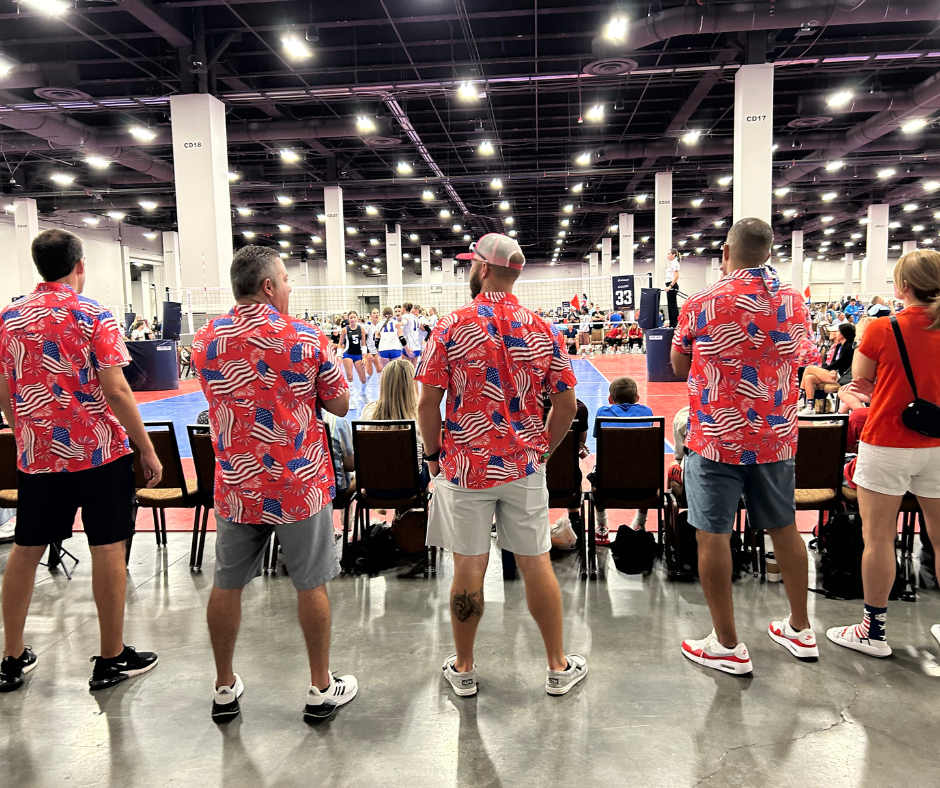
How The 19% Undermine Their Kid’s Team Culture
by Matt Young – FSQ Sports
How The 19% Undermine Their Kid’s Team Culture. We all know youth sports are where kids grow, learn, and enjoy the camaraderie of competition. For parents, however, it’s a different game—one where hopes and expectations often clash with reality. Among a team of 20 participants, you’ll find parents typically fall into four categories: The Pragmatic, The Hopeful, The Delusional, and The Aware. Understanding these groups reveals how each shapes their child’s experience.
Understanding the Ripple Effect. How Your Behavior Is Effecting The Team
The Pragmatic (50%)
Sarah knows her son Jack won’t go pro, and she’s fine with that. She sees sports as a way to build friendships, teach life lessons, and keep Jack active. She’s there to cheer for him without pressure, content that youth sports are about the journey, not the destination.
The Hopeful (30%)
David is optimistic yet realistic about his daughter Mia’s chances of making it to the NCAA. He holds on to hope, signing her up for extra camps and training. But, like many hopeful parents, he teeters between enjoying Mia’s progress and wondering if he should be doing more to push her.
The Delusional (19%)
Mark believes his son Ethan is destined for greatness, pushing him hard to get more playing time and additional training. He’s vocal, influencing other parents and creating unnecessary pressure within the team. His expectations overshadow the true purpose of sports, causing tension and stressing his son.
My Daughter Quit Sports, and This is What I Want Youth Sports Parents To Know
The Aware (1%)
Rachel knows her daughter Chloe is a standout, but she lets her performance speak for itself. She trusts the coaches, stays supportive but uninvolved, and sets an example of quiet confidence. Rachel understands that Chloe’s growth, not scholarships, matters most.
The Reality: Only 6.24% Make It to the Show
The sobering truth is that just 6.24% of high school players across all sports will go on to play at the NCAA level (Division 1, 2, and 3).
The 1% on a team of 20 translates to less than 1 player across five combined teams. Parents like Sarah and Rachel understand this, helping foster a healthier sports environment focused on character and resilience rather than unrealistic aspirations.

The 19% Impact on Team Culture
When delusional parents dominate, they often create division. The pressure to succeed can fracture team unity, undermine coaches’ authority, and disrupt other parents. This vocal minority shifts focus from enjoyment and growth to cutthroat competition, making youth sports more stressful than enriching.
To foster a positive team culture, clubs and coaches must proactively manage parental expectations:
- Acknowledge the Odds and Focus on Development: Shift focus from chasing scholarships to fostering life skills. Early communication about the realities of NCAA chances sets the right tone.
- Set Clear Expectations Early: Preseason meetings should outline goals for player development and parental involvement, ensuring everyone is aligned with the team’s values.
- Educate Parents: Offer workshops on player development and the effects of parental pressure, helping parents understand their role in supporting their child’s growth.
- Empower Coaches: Coaches must be equipped to set boundaries and lead confidently, handle tough conversations, and keep the focus on development.
- Create a Code of Conduct: Establish rules for parent behavior, with enforceable consequences, to protect team culture and minimize toxicity.
- Facilitate Ongoing Communication: Regular check-ins and open dialogue keep parents involved and prevent tensions from escalating.
- Introduce Player and Parent Reps: Assigning team reps provides a constructive outlet for concerns, defusing potential conflicts before they disrupt the team.
- Redirect Delusional Parents’ Energy: Engage overly enthusiastic parents in positive roles, such as organizing team events, to channel their energy productively.
Clubs, coaches, and parents must immediately address the influence of the 19%, as their unchecked behavior can quickly undermine the team’s and club’s culture and derail the development of all players.
Without decisive action, the focus shifts from growth and enjoyment to toxic competition, placing unnecessary pressure on young players and breeding division within the team. And that’s exactly what’s happening across youth sports right now.
 Matt Young is a globally renowned expert in transforming Long Term Athlete Development from theory into a practical operating system. His powerful holistic organization and player development message has resonated worldwide through keynote presentations, documentaries, and TEDx talks. Matt’s unwavering dedication and inspiring work drive positive change in health, wellness, and sport, impacting the world. Connect with Matt at matt@fsqsport.com
Matt Young is a globally renowned expert in transforming Long Term Athlete Development from theory into a practical operating system. His powerful holistic organization and player development message has resonated worldwide through keynote presentations, documentaries, and TEDx talks. Matt’s unwavering dedication and inspiring work drive positive change in health, wellness, and sport, impacting the world. Connect with Matt at matt@fsqsport.com










